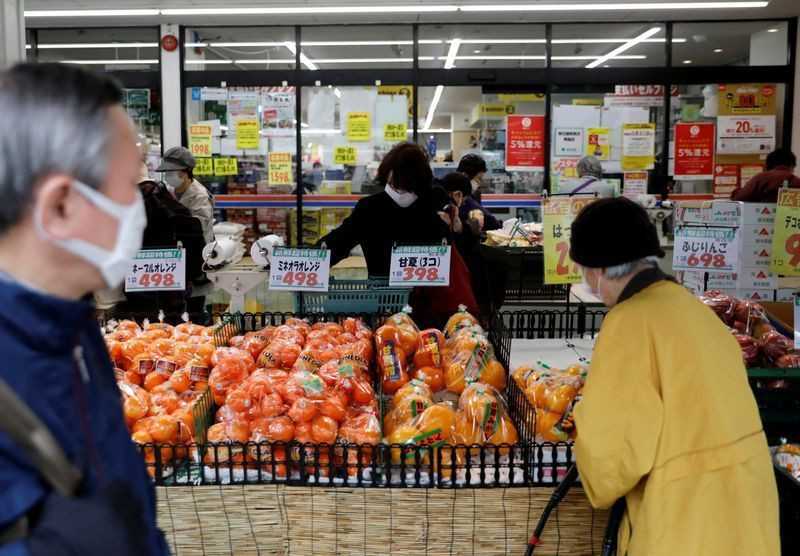Japan's consumer prices fall at decade-fast speed, adding to deflation fears
24 January, 2021

Japan's core consumer prices slumped in December at the most effective annual pace in ten years, an indicator of intensifying deflationary pressures that sharpen the circumstance for the central lender to create better ways to combat the deepening influence of the COVID-19 pandemic.
Friday's weak info underscores the issues policymakers face in stopping the propagate of the virus without increasing any risk of strain on an economy already experiencing a renewed talk about of crisis rolled out this month.
The nationwide core consumer price index (CPI), which include oil but excludes clean food costs, fell 1.0% in December from a year before, government info showed, slightly less than a median marketplace forecast for a 1.1% drop.
It was the largest annual fall since September 2010, when Japan was grappling with grinding deflation and a good spike found in the yen that dealt a extreme blow to the export-reliant economy.
"Intake is slowing quite sharply as a result retailers can't raise rates. Japan is obviously facing deflationary pressures," stated Takumi Tsunoda, senior economist at Shinkin Central Lender Research Institute.
Analysts, however, happen to be split on whether Japan was heading rear towards the two-decade long deflation it endured until 2013, when many firms competed for demand with big discounts.
"I don't think Japan is reverting to deflation as a trend, as price falls aren't necessarily broad-based," Tsunoda added.
Still, new condition of emergency measures could cripple services spending and prod more firms to cut rates. That, subsequently, could stoke open public perceptions prices could keep dropping - a risk the BOJ flagged on Thursday.
"I don't think the chance of Japan sliding back to deflation is high," BOJ Governor Haruhiko Kuroda told reporters on Thursday. "But potential growth may be falling so we must consider the impact (on prices) properly."
The weak price info could affect the BOJ's debate when it examines its framework in March since it aims to create its policy tools more "sustainable and effective", some analysts say.
Mounting deflationary pressures could heighten the need to get the BOJ to create methods to ensure its large stimulus programme can certainly endure the battle to attaining its 2% inflation focus on, prolonged by COVID-19.
Some analysts expect consumer prices to recuperate over the short-term.
Slumping fuel costs and a government advertising campaign offering discounts designed for domestic travel were mainly behind the drop in CPI, the data showed. Of the full total 523 components of the primary index, 242 saw rates surge while those for 220 items fell.
When stripping away the result of fresh food, strength and the impact of the government's travel discount campaign, consumer rates rose 0.1% in December, government estimates showed.
"While headline inflation dropped to an 11-time low in November, that was because of weaker energy and fresh food inflation. We anticipate inflation to recuperate over the coming a few months," explained Tom Learmouth, an economist at Capital Economics.
Source: japantoday.com
TAG(s):
